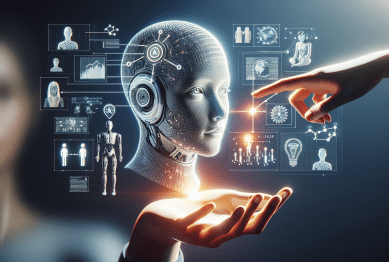Quantum computing is set to reshape the world of technology, science, and society itself. Explore why this breakthrough matters, what it could unlock, and the real-world implications for everything from encryption to research. This guide demystifies quantum computing, offering an accessible look at its present and future impact.
Understanding Quantum Computing Basics
Quantum computing remains a mysterious topic for many, but its core principles are surprisingly approachable. At the heart of quantum technology are quantum bits, or qubits. Unlike classical bits, which can only represent 0 or 1, qubits exist in multiple states at the same time thanks to the fundamental property of superposition. This makes quantum computers uniquely powerful, enabling them to process vast combinations of possibilities simultaneously, promising a dramatic speed-up for certain complex tasks.
Quantum entanglement, another pillar of quantum computing, connects qubits in such a way that the state of one instantly influences another, even across great distances. This effect, famously described by Einstein as ‘spooky action at a distance,’ allows for massively parallel calculations. The blend of superposition and entanglement means that quantum computers could transform industries that rely on optimization, cryptography, or big data analysis.
However, building reliable quantum computers is a technical challenge. Qubits are highly sensitive to their environment—tiny disturbances can cause ‘quantum decoherence,’ leading to errors. Ongoing research tackles these hurdles using advanced techniques like quantum error correction. Understanding these basics is essential, not only for appreciating the science, but also for recognizing how quantum computing might shape the future digital landscape for everyone.
Why Quantum Computing Is a Breakthrough
The quantum advantage comes from the exponential scaling inherent in quantum systems. Problems that would take classical computers thousands of years—like factoring large numbers or simulating molecules—could, in theory, be solved in seconds or minutes by a sufficiently powerful quantum device. One of the most frequently discussed applications is in breaking conventional encryption algorithms, prompting an urgent need to rethink cybersecurity strategies as quantum capabilities advance.
Beyond cracking codes, quantum computers are set to redefine scientific discovery. Fields such as chemistry, materials science, and pharmacology rely on simulating the interactions of subatomic particles. Classical computers struggle with these simulations as complexity climbs, but quantum systems can model these phenomena natively. This opens the door to designing new drugs, innovative materials, or energy sources by experimenting in the virtual quantum realm before moving to real-world experiments.
Many current breakthroughs in machine learning and artificial intelligence benefit from advances in quantum algorithms. Quantum computing could help accelerate pattern recognition, optimize vast networks, or even inspire new kinds of neural networks. The potential reach is enormous—touching everything from optimizing traffic in smart cities to tackling climate modeling challenges that go far beyond current limitations. Industry leaders, universities, and governments are all investing heavily due to these projected impacts.
Quantum Security: Protecting Information in a New Era
The rise of quantum computers drives an urgent global focus on quantum-safe cryptography. Most internet security relies on mathematical problems that are hard for classical computers but could potentially be solved quickly by quantum machines. This means encrypted emails, transactions, and sensitive data might one day be at risk if not sufficiently protected with new encryption schemes resilient to quantum attacks.
Governments and organizations are preparing by exploring post-quantum cryptography—algorithms believed to withstand quantum decryption attempts. Research into quantum key distribution also offers promise, using the laws of quantum physics to detect eavesdropping, strengthening data security in an unprecedented manner. The National Institute of Standards and Technology (NIST) and other agencies are coordinating efforts to standardize these new techniques (see NIST for more).
For individuals, quantum security may seem abstract, but it will eventually affect everyone who uses digital services. From online banking to healthcare records, quantum-proof protocols will become necessary. As adoption spreads, expect upgrades in everything from personal devices to government infrastructure, all designed not just for current threats, but for a future shaped by quantum innovation. Stay curious and informed, as these changes are likely to arrive quietly yet profoundly.
Industries Ready for Quantum Disruption
Mature industries are already exploring quantum computing’s potential to revolutionize operations. In the pharmaceutical sector, quantum simulations may quicken the discovery of new drugs by modeling molecules at a scale impossible for traditional computers. Similarly, logistics and supply chain management are turning to quantum algorithms for route optimization and forecasting, often reducing costs and boosting efficiency significantly.
Financial services are another major arena undergoing transformation. Investment banks and asset managers are experimenting with quantum algorithms to forecast markets and manage risk. Quantum computers can optimize enormous portfolios, test trading strategies, or assess financial products in new ways (see OECD insights). These improvements could change how institutions make decisions and manage large-scale financial assets.
Other sectors—like automotive design, energy, and national defense—are investing in quantum research, eager to maintain competitiveness and security. Automakers study how quantum tools can enhance battery technology or simulate vehicle performance. Energy companies look to quantum systems to model complex processes or optimize resource allocation. Across these fields, quantum technology is fostering innovation and inspiring new ways to solve old problems.
Learning Quantum: Education and Workforce Preparation
With quantum computing’s influence growing, educational paths are evolving quickly. Universities and online platforms offer foundational courses in quantum mechanics, computer science, and algorithm design. Some programs emphasize practical quantum programming, equipping students and professionals to run experiments on publicly available quantum hardware, such as IBM’s Quantum Experience or Google’s Cirq playground (see Quantum Country for structured follow-up learning).
The demand for skilled quantum engineers, theorists, and software developers is increasing rapidly. Government and industry partnerships are funding research grants, trainee programs, and hackathons aimed at building the future workforce (see NSF Quantum Leap). This ecosystem aims to produce graduates fluent in quantum concepts as well as the broader impacts of the technology—spanning ethics, security, and practical deployment challenges.
Non-technical educational tools are also making quantum more approachable. Interactive tutorials, podcasts, and community platforms help demystify the subject for broad audiences. Many people find it rewarding to explore these resources, gaining early familiarity with ideas that will become increasingly prominent. Lifelong learners curious about quantum principles can participate, ensuring the benefits and risks are widely understood as the technology matures and spreads across society.
Everyday Impacts: What Quantum Computing Could Mean for You
The influence of quantum computing won’t be limited to scientists or business executives. As quantum technology matures, it will reach into the fabric of daily life. Smartphones, cloud services, transportation logistics, and even online privacy could all be reshaped. For example, expect future mobile devices equipped with quantum-enhanced processors, enabling new levels of voice recognition, security, or healthcare diagnostics right from your pocket.
Additionally, advances in artificial intelligence, fueled by quantum speed-ups, may soon affect the recommendations you see in streaming platforms, the performance of navigation apps, or the accuracy of translation tools. Supply chains will be optimized, potentially speeding delivery and making more efficient use of resources in ways invisible to the average consumer, but deeply influential on cost and access (see Nature on practical impacts).
Quantum computing will likely also fuel scientific and medical breakthroughs, with potential impacts ranging from better climate modeling to faster drug discovery that benefits public health. Whether you interact with this technology directly or enjoy its downstream results, quantum computing is poised to alter the landscape. Staying informed helps everyone anticipate the ways these changes might touch daily routines, education, and the broader technological world.
References
1. National Institute of Standards and Technology. (n.d.). Post-Quantum Cryptography. Retrieved from https://csrc.nist.gov/projects/post-quantum-cryptography
2. OECD. (n.d.). Quantum Computing: OECD Science, Technology and Innovation Outlook. Retrieved from https://www.oecd-ilibrary.org/science-and-technology/quantum-computing_1642e931-en
3. Nature. (2019). The reality of quantum advantage. Retrieved from https://www.nature.com/articles/d41586-019-02935-4
4. Quantum Country. (n.d.). Quantum computing learning tools. Retrieved from https://quantumcountry.com/
5. National Science Foundation. (n.d.). NSF Quantum Leap. Retrieved from https://www.nsf.gov/news/special_reports/quantum/
6. IBM Quantum. (n.d.). Learn Quantum Computing. Retrieved from https://quantum-computing.ibm.com/learn/









